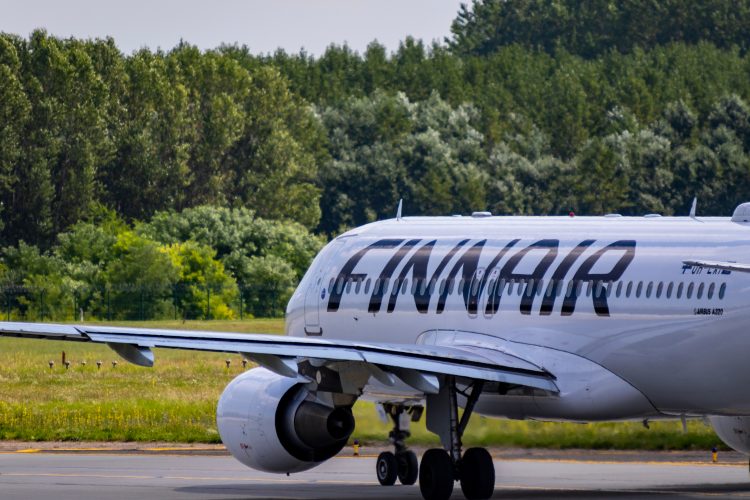Finnair suspends flights to Tartu, Estonia for a month following GPS interference
- Like
- Digg
- Del
- Tumblr
- VKontakte
- Buffer
- Love This
- Odnoklassniki
- Meneame
- Blogger
- Amazon
- Yahoo Mail
- Gmail
- AOL
- Newsvine
- HackerNews
- Evernote
- MySpace
- Mail.ru
- Viadeo
- Line
- Comments
- Yummly
- SMS
- Viber
- Telegram
- Subscribe
- Skype
- Facebook Messenger
- Kakao
- LiveJournal
- Yammer
- Edgar
- Fintel
- Mix
- Instapaper
- Copy Link
Posted: 3 May 2024 | International Airport Review | No comments yet
Last week, two Finnair flights had to divert back to Helsinki after GPS interference prevented the approach into Tartu.


Finnair announce decision to suspend flights to Tartu, Estonia for a month
Due to cases of GPS interference, Finnair has made the decision to suspend daily flights to Tartu, Estonia, from April 29 to May 31 2024. Finnair is looking into an alternative approach solution, that doesn’t require a GPS signal, to be put in place at Tartu Airport.
Tartu Airport currently bases their approach methods on a GPS signal. There have been reoccurring instances of GPS interference in the area surrounding Tartu Airport, which has affected the usability of the airport’s approach method and therefore prevented aircraft from safely approaching and landing. Last week, two Finnair flights had to divert back to Helsinki after GPS interference prevented the approach into Tartu.
Responses by airlines and officials
In speaking to the Financial Times, Juho Sinkkonen, Head of Flight Operations at Finnair said that GPS interference had been increasing since 2022 and was “a nuisance with no imminent safety impact”. Most airports had equipment to allow planes to land without GPS, Sinkkonen added, but Tartu “is one of the few airports where the approach procedures require a GPS signal”.
Gabrielius Landsbergis, Lithuania’s Foreign Minister also stated that: “If someone turns off your headlights while you’re driving at night, it gets dangerous. Things in the Baltic region near Russian borders are now getting too dangerous to ignore.”
Margus Tsahkna, Estonia’s Foreign Minister, added: “We consider what is happening with GPS as part of Russia’s hostile activities, and we will definitely discuss it with our allies. Such actions are a hybrid attack and are a threat to our people and security, and we will not tolerate them.”
What will Finnair be doing?
Finnair will suspend flights to Tartu for one month, while it aims is to build approach methods at Tartu Airport that enable a safe and smooth operation of flights without a GPS signal.
Customers who have booked flights between Helsinki and Tartu on April 29 to May 31 2024 will receive a cancellation message from Finnair and will be given more information of their options by text message and/or email.
Finnair is the only airline operating international flights to Tartu.
“We apologise for the inconvenience the suspension causes to our customers. Flight safety is always our top priority, and as the approach to Tartu currently requires a GPS signal, we cannot fly there in the event of GPS interference,” says Jari Paajanen, Finnair’s Director of Operations.
“The systems on Finnair’s aircraft detect GPS interference, our pilots are well aware of the issue, and the aircraft have other navigation systems that can be used when the GPS system is unserviceable,” Paajanen says. “Most airports use alternative approach methods, but some airports, such as Tartu, only use methods that require a GPS signal to support them. The GPS interference in Tartu forces us to suspend flights until alternative solutions have been established.”
Who is behind the interferences?
According to experts, tens of thousands of civilian flights have been affected by the GPS jamming in recent months. The jamming, once in operation, affects all GPS users in the area and there have been cases of impeded signals on boats in the Baltic Sea. This has lead to warnings from the Swedish navy about the safety of shipping.
According to a statement by the Financial Times, no country has been held responsible for signal interference in the Baltics, but officials said there was little doubt that Russia was behind the jamming, both from its mainland and exclave of Kaliningrad (which lies between Poland and Lithuania on the Baltic Sea). A senior official posited one theory that Russia was trying to protect Kaliningrad from potential attacks by Ukrainian drones. The Kremlin did not respond to a request for comment made by the Financial Times.
In the case of Finnair, GPS interference has increased since 2022, with Finnair pilots reporting interference near Kaliningrad, the Black Sea, the Caspian Sea and the Eastern Mediterranean. Typically, GPS interference does not affect flight routes or flight safety, as pilots are well aware of it and aircraft have alternative systems in place that are used when the GPS signal is interfered with.
Related topics
Related airports
Related airlines
Related regions
Related people
Gabrielius Landsbergis, Jari Paajanen, Juho Sinkkonen, Margus Tsahkna


















